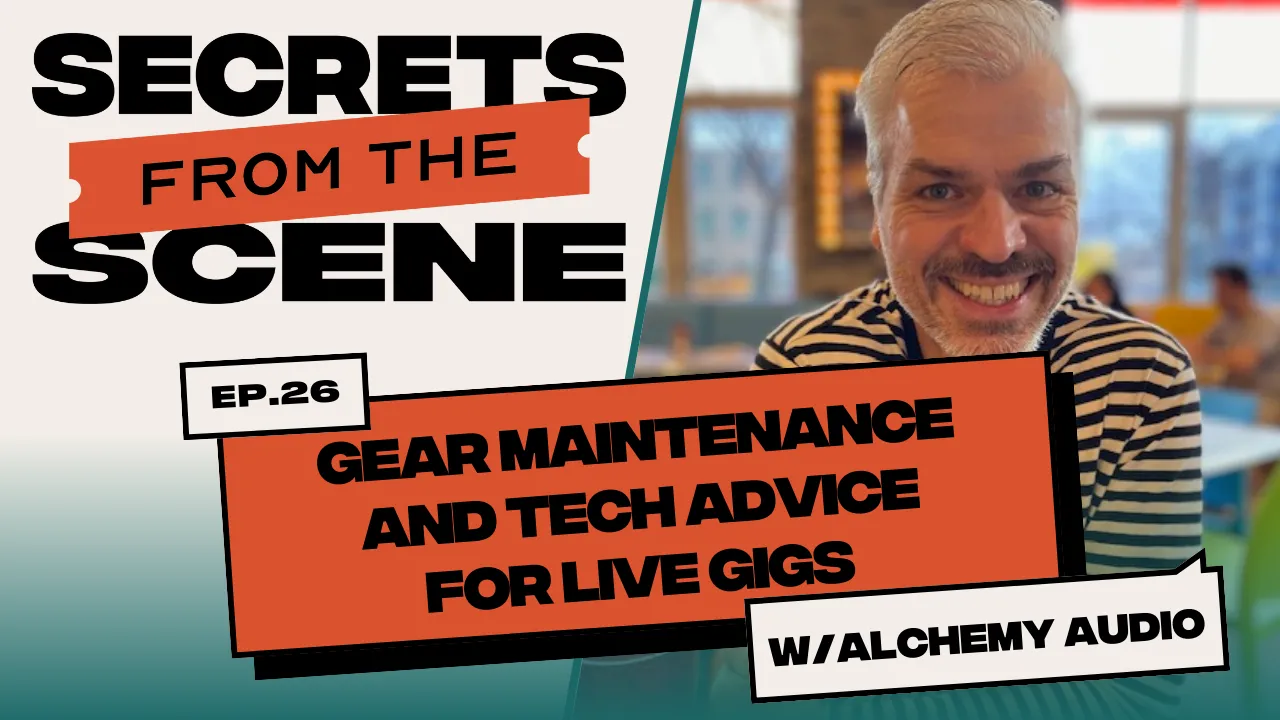Show Notes
If you've ever experienced a gear failure during a gig, you know just how stressful it can be. The frantic scramble to find a workaround while trying to conceal the issue can seriously disrupt your flow. And depending on the severity of the failure, it can throw off the entire performance.
The aftermath of such mishaps? You're left feeling distracted, frustrated, embarrassed, or simply annoyed – definitely not the vibe you were aiming for.
But fear not! With the right approach to maintenance, having basic backup items on hand, and honing your troubleshooting skills, you can swiftly get back on track without breaking a sweat. Instead of succumbing to panic, you can feel confident in diagnosing and promptly addressing any technical glitches.
In this episode, I'm joined by Johnny Balmer, the founder of Alchemy Audio, a renowned repair shop specializing in guitar effects pedals. With years of experience as both a live sound engineer and a guitar pedal repair tech, Johnny has encountered and tackled all manner of common problems that may arise during gigs.
Together, we dive into the world of guitar pedal repairs and share invaluable tech wisdom. From discussing preventive measures to troubleshooting techniques and best practices, we cover everything you need to know to navigate through technical difficulties seamlessly.
Whether it's preventing gear failures, troubleshooting on the fly, or optimizing performance, the insights and tips shared in this episode may just be the saving grace for your next gig!
watch now on YouTube:
Episode Links and Mentions
Connect with the Guest
Connect with Me
Give Feedback
📬 Send me a message: stephen@secretsfromthescene.com
💬 Suggest a guest or topic: podcast@secretsfromthescene.com
🎙️ Brought to you by:
--------------------------------
Thank You
This podcast is made possible by the hard work, expertise, and commitment of my team:
Max Greene and Joey Biehn. I'm forever grateful.
--------------------------------
Theme Music: "Thankful" Courtesy of LUEDVIG

